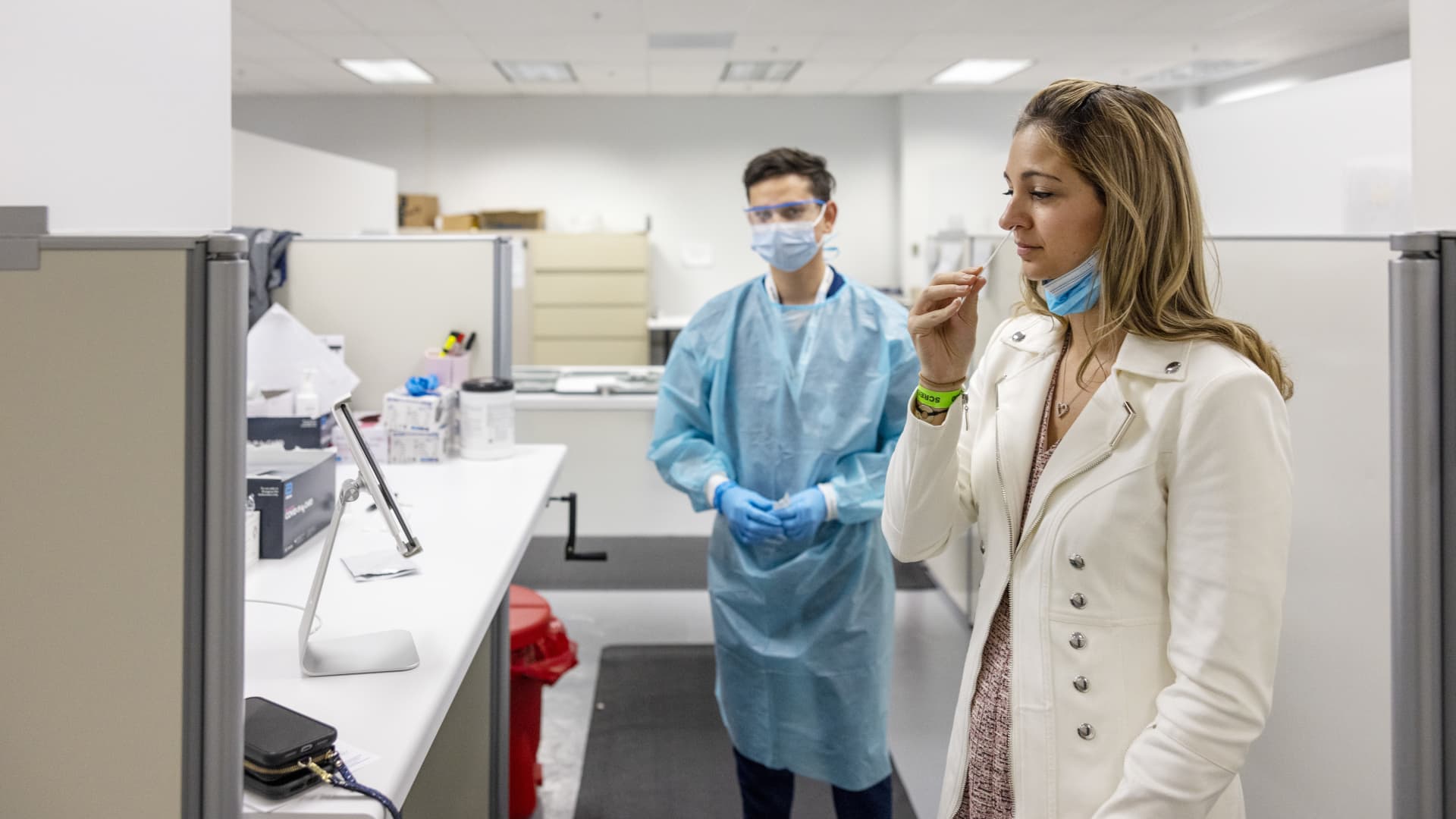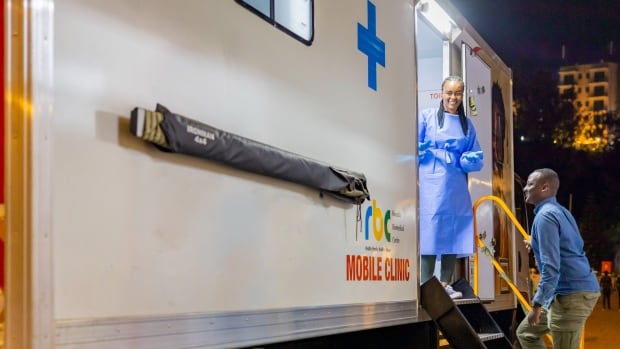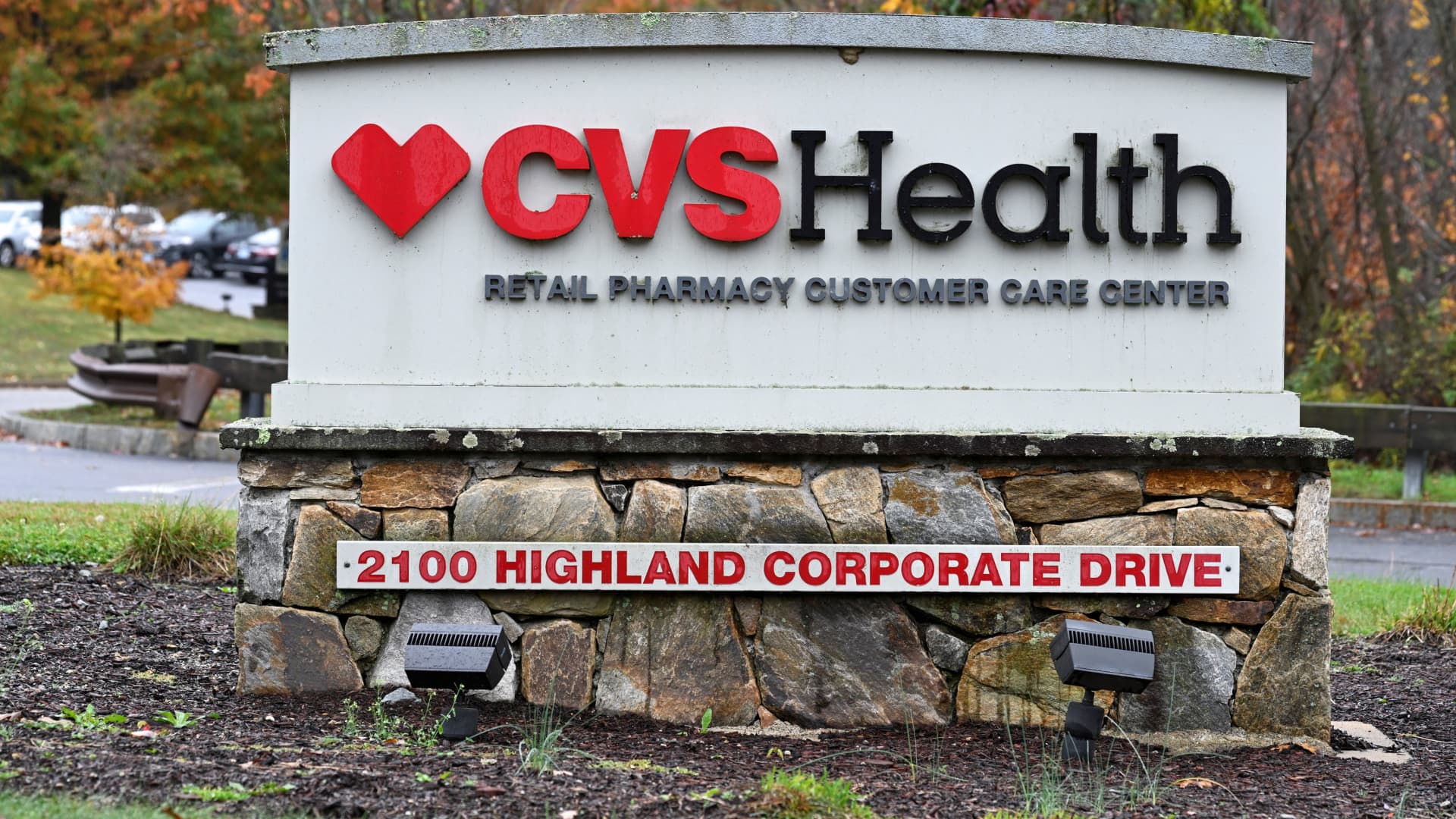When Nicole Lukas-Mckenzie tells her clients she knows what they’re going through, she means it.
At People Advocating for Change for Empowerment (PACE), a drop-in centre on Thunder Bay, Ont.’s south side, she sees people experiencing homelessness, addiction and the stigma that comes with facing complex social challenges.
“I was in active addiction for 12 years and I got sober. I’ve been 16 months sober now and I really, really would have loved a place like PACE to come to when I was in active addiction,” she said.
The Thunder Bay District Health Unit has had the highest opioid toxicity mortality rate of any public health unit in the province for the past two years, according to data from Ontario’s Office of the Chief Coroner. That rate — 74.4 per 100,000 population — was more than triple the provincial rate in the first three quarters of 2023.
This year alone, there have been 22 suspected drug-related deaths, compared to 132 in 2023.
Every person who works at PACE has lived experience of the issues their clients are facing.”They find it easier to talk to us because we’ve been where they’ve been, right?” Lukas-Mckenzie said.
Thunder Bay, Ont., remains among the communities hit hardest by the opioid crisis. At People Advocating for Change Through Empowerment (PACE), all workers have lived experience of what their clients are going through. The CBC’s Sarah Law spent time at the centre on the city’s south side to hear how staff connect with clients through shared experiences.
‘Sometimes they just want us to listen’
At PACE, people can get food and clothing, do their laundry and connect with other community services. During daily group sessions, clients can play games, get into craft-making and share their goals.
“Sometimes they just want us to listen. Sometimes they need help. We’re here to help with whatever they need,” Lukas-Mckenzie said.
Tabitha Johnson, a member of Long Lake #58 First Nation and Seine River First Nation, comes to PACE to do art, use the computer and access support.
When her dad died, PACE staff came to the funeral with her and some are now helping her find a new place to live.
“My vision is to get my kids back and go to treatment, get myself better, and finish my education,” Johnson said.
One of the biggest barriers preventing people in Thunder Bay from getting treatment is a lack of resources, Lukas-Mckenzie said.
“I’ve seen clients come here, go to detox and then I’ll see them five days later back here because they couldn’t get into treatment right away,” she said.
“Most of them really wanna get sober and most of them really want help, but it’s hard when the wait times are so long.”
Push for more treatment options
Kyle Arnold, co-ordinator at PACE, said when someone experiencing addiction reaches out for help, there’s a small window to intervene.
But when waitlists are long and services are hard to navigate, “a lot of the time, we’re not able to help them within that window,” Arnold said.
Arnold lived with addiction for nearly 20 years, mostly in British Columbia. He has been in recovery for 5½ years.
“I always tell people, ‘When you see that addict on the street corner that’s 135 pounds, that’s strung out, that’s flailing around with no hope in their eyes — that was me,'” he said.
He described the vicious cycle — going from the courts to recovery homes and then back on the streets — and how hard it was to break free.
“We need to expand detox. We need to expand the recovery community,” he said. “We need more treatment options and we need more funding to be able to send people out of the city, so that they maybe can find that connection that they’re looking for.”
More support coming, say government officials
When asked to speak with Michael Tibollo, Ontario’s associate minister of mental health and addictions, about these calls to action, a spokesperson for the Ministry of Health emailed a statement to CBC News.
The provincial budget includes nearly $400 million in additional funding over three years for mental health and addiction services, said spokesperson Bill Campbell.
That money includes the province’s Addictions Recovery Fund, “which has added 500 recovery beds, over half of which are in the north, and 22 new Youth Wellness Hubs,” Campbell said.
It is unclear how many new beds are being allocated in Thunder Bay.
Campbell also pointed to the province’s mobile crisis response teams, safe beds, opioid agonist therapy (which involves taking methadone or suboxone to prevent withdrawal symptoms and reduce opioid cravings), and Rapid Access Addiction Medicine clinics, as key investments.
Federally, a spokesperson for Minister of Mental Health and Addictions Ya’ara Saks said there’s more money in this year’s proposed budget to address the toxic drug and overdose crisis.
“Budget 2024 proposes to provide $150 million over three years, starting in 2024-25, for a new fund that would be open to municipalities and Indigenous communities to help provide rapid responses to emergent, critical needs related to the overdose crisis,” said press secretary and issues adviser Yuval Daniel in an email to CBC News.
There’s also more support for provincial initiatives through bilateral agreements, Daniel said, in which “more than one-third of funding has been committed to mental health and substance use initiatives.”
Georgina McKinnon, executive director of PACE, said organizations across Thunder Bay have been meeting monthly with Ontario Health about the need for more treatment beds, sobering spaces and aftercare.
“I’m very hopeful that yes, we are going in the right direction,” she said.
McKinnon, who struggled with a cocaine addiction in her younger years, said it’s important to push back against the stigma surrounding drug use.
“A lot of people look at the clients that come here and think that they’re worthless, and they’re not,” she said, pointing out the window where clients were doing a neighbourhood cleanup.
“They don’t all want handouts. They want to earn what they’re getting in return, but it’s really difficult for them.”
Keeping people safe
Kloey Cook, who is graduating from Confederation College’s Indigenous Community Advocacy program this spring, chose to do her placement at PACE because of her passion for harm reduction.
“I was raised by two mothers who used substances. My biological mother is still using substances today,” Cook said.
At PACE, she hands out naloxone kits, which can be used to reverse the effects of an opioid overdose, as well as bandages and new drug equipment that can prevent the spread of diseases.
“People are going to use substances regardless of what we do — so just making sure they’re safe is what’s important,” she said.
As Lukas-Mckenzie continues her recovery journey, she reminds people they are welcome at PACE no matter what they’re going through.
“No one’s giving up on them here at PACE,” she said. “We’re here to help the most vulnerable with whatever they need.
“We do the best that we can here.”
PACE is most in need of donated healthy snacks, water, and men and women’s underwear, which can be dropped off at 510 Victoria Ave. E.






